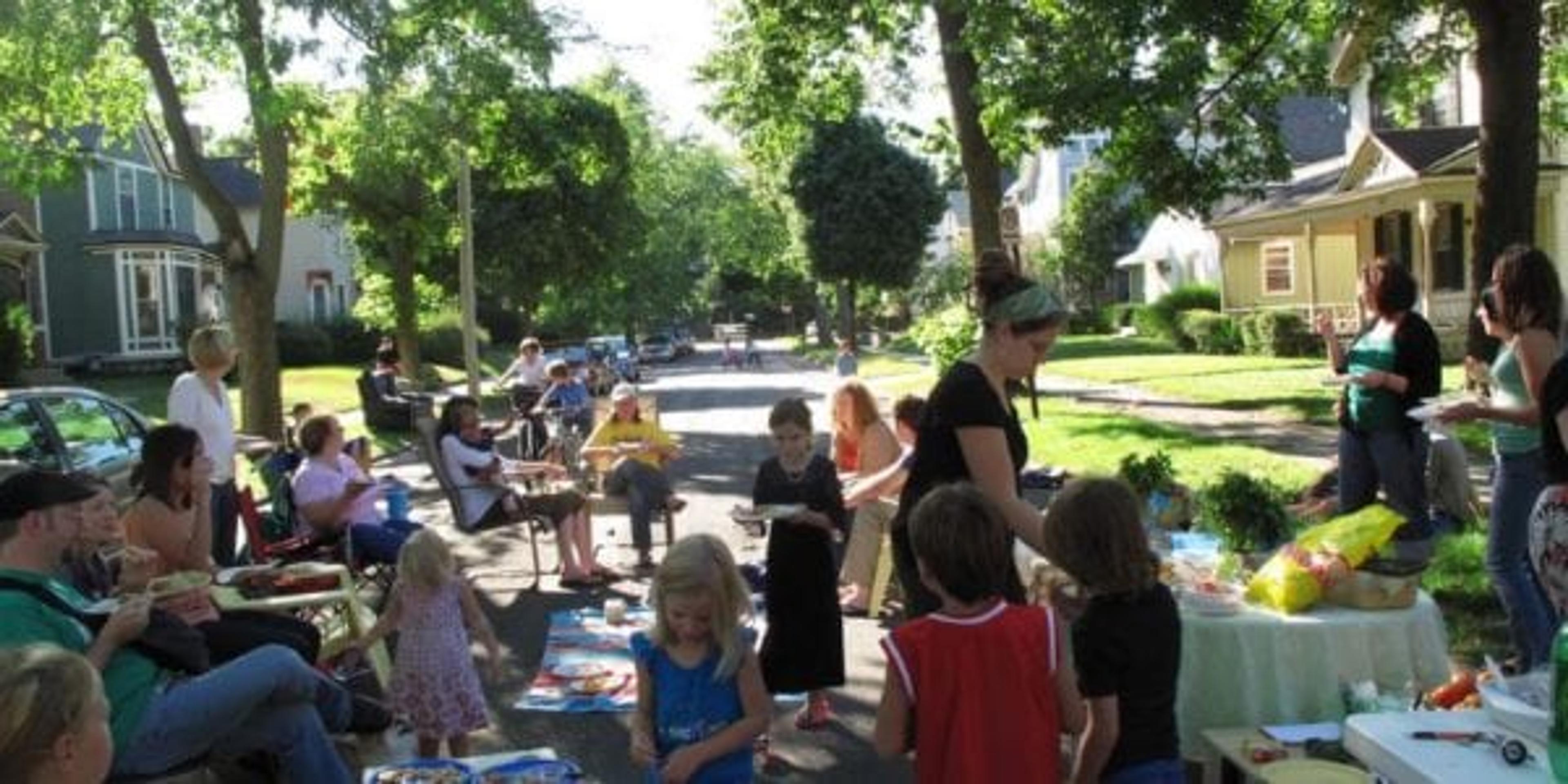7 Steps for Planning the Ultimate Block Party
| 3 min read

Who doesn’t love a good party with delicious food, fun games and great company? Even better: a block party. Not only do you spend a beautiful day outdoors, but all of your neighbors will get to know each other better — from the new family that just moved in next door to the elderly couple who has been in the neighborhood for decades. Block parties are great for building relationships and help build a community.
With fall fast approaching and tailgates in full swing, now is the perfect time to gather your neighborhood together and throw the ultimate block party. Here’s how to get started:
- Form your team. There’s no sense tackling the party planning on your own. Recruit others in the neighborhood to help you out. Not sure who to ask? Think about those who are connected to other neighbors and who love bringing people together (maybe your friend who runs a book club or the guy who organizes lawn care for shared grassy spaces).
- Choose a date. After your team is set, decide on a date and time for your event. Give yourselves enough cushion by planning the event at least three weeks in advance. Quick tip: Avoid national or religious holidays, as they are often filled up with family events or trips. Also consider the time of day you’d like for it to be held. Will it be a sunset gathering? An afternoon party? Midday community brunch? A football game is a fun way to center the fun around and solves for many details!
- Work on the details. Most block parties are potlucks—this way nobody is responsible for all of the cooking (and cost!) involved in feeding a crowd. Decide on the location, theme and if you’re going to have any decorations. Lastly, don’t forget to have a contingency plan for rain, whether it’s a tent, community building or someone’s home.
- Don’t forget the permit. Some cities require their communities to have a permit to hold a block party, so be sure to check with your local municipal office to confirm if you need one. You’ll also want to pick up some “no parking” signs to hang up the day of the party. Not able to shut down your street? Ask about obtaining a permit for a nearby park.
- Let everyone know! Split up the neighborhood amongst your team members and go door-to-door letting your neighbors know about the party. Bring flyers with you to spread the word and have a sign-up sheet with a list of items needed on hand in case anybody wants to sign up immediately for the potluck. When people say they’ll come, write down the family’s name, the number of people attending, food/beverages they can bring and any equipment or services (e.g. setup or teardown) they can contribute. Make sure to have a contact phone number and email address on the flyer.
- Boost the fun factor. Chances are there will be lots of kids at the party, so make sure there are some fun activities planned. Whether it’s supplies for classic games like four square, sidewalk chalk for budding artists or a karaoke machine, having a few items on hand can go a long way towards keeping kids (and adults!) happy.
- Stay organized. A few days before the party, reach out to everyone who is participating to confirm they are still able to bring food or help with setup or breakdown. And one last thing: On the day of the party, don’t forget to have fun!
Photo credit: Denise Cheng





